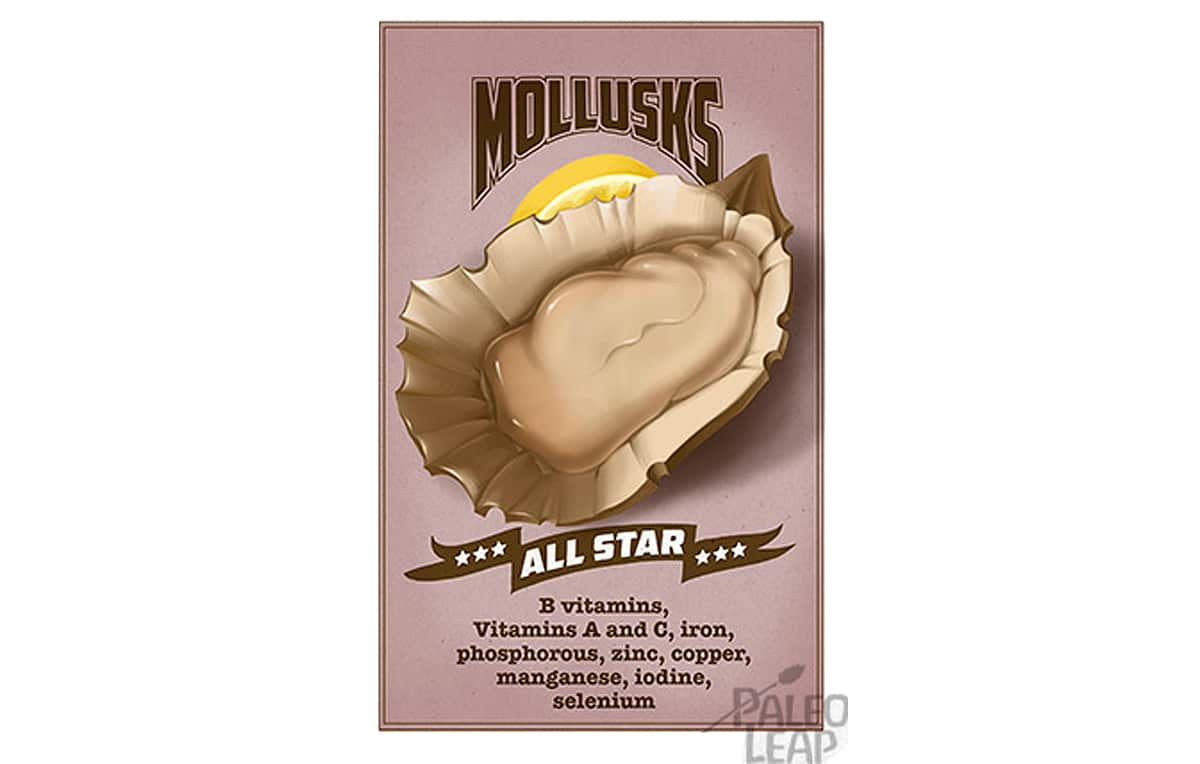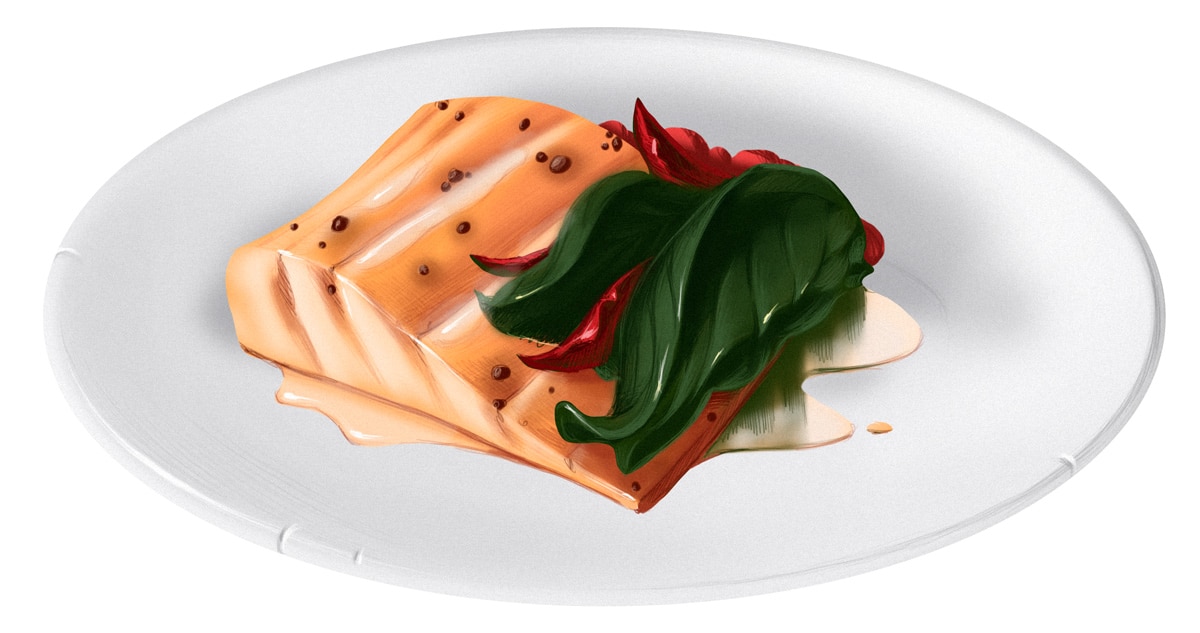
Fruits and vegetables get all the good press for preventing chronic disease, but animal foods also provide valuable nutrients that help maintain DNA integrity and protect against cancer, autoimmunity, and other chronic diseases.
Why DNA Damage is Dangerous
Every cell in your body holds a complete copy of your DNA, and when the cell divides, that DNA needs to be copied exactly. DNA damage, caused by errors in copying DNA, is a key factor in cancer growth. As this paper puts it:
“...all agents that cause cancer (carcinogens) also cause a change in the DNA sequence and thus are mutagens. All the effects of carcinogenic chemicals on tumor production can be accounted for by the DNA damage that they cause and by the errors introduced into DNA during the cells’ efforts to repair this damage..”
A related issue is DNA methylation. Methylation is a process that controls DNA expression, or which genes actually get “turned on” at any given time. Abnormal DNA methylation is a hallmark of cancer. In cancer cells, over-methylation can “turn off” tumor suppressor genes while under-methylation “turns on” genes for cell growth and division, allowing the tumor to grow faster. Errors in DNA methylation are also involved in the development and progression of autoimmune disease, because they change the expression of DNA necessary for proper immune function. It's not a simple question of "methylation is good" or "methylation is bad;" it's about hitting the right balance.
DNA damage and errors in methylation are also involved in aging, and may be factors in other chronic diseases like cardiovascular disease. Basically, it’s really, really in your best interest to keep your DNA healthy and undamaged.
Diet and DNA Repair
Diet can play a big role in preventing DNA damage, promoting DNA repair processes, and regulating methylation. Quick reality check: it’s not possible to completely prevent cancer, autoimmune disease, or aging with diet. There are causes of DNA damage that have nothing to do with diet (like exposure to radioactivity), and there’s no such thing as perfect safety from cancer or any other disease.
With that said, diet certainly can help a lot, and the most famous nutritional “good guys” for DNA health are antioxidants. Plant foods are famous for providing antioxidants - like this study, where eating tomatoes rich in the antioxidant lycopene helped reduce DNA damage in women. But there’s an unsung hero for DNA health: animal foods.
Animal foods get unfairly terrible press when it comes to chronic disease. The point of this post isn't to disprove every dumb argument against red meat or animal fat; you can read about that here, here, and here if you’re interested. The point is to focus on the positives: the DNA-protective functions of animal food. Animal foods are rich in nutrients like zinc, selenium, and B vitamins that promote DNA repair and regulate methylation.
Animal Foods and DNA Health: Antioxidants
Plant foods get all the good press for their antioxidant content, but many animal foods are incredibly rich in antioxidants as well.
One example is zinc. As this review explains, zinc protects DNA against oxidative damage and helps repair it if damage does occur. Zinc deficiency causes DNA abnormalities in human lung cells.
As the review sums up: “Dietary deficiencies in zinc can contribute to single- and double-strand DNA breaks and oxidative modifications to DNA that increase risk for cancer development.”

Zinc is particularly notable because so many people don’t get enough of it. 1 out of every 10 people in the US consumes less than half the RDA for zinc.
Zinc is mostly found in animal foods. A 3-ounce serving of chuck roast provides almost 40% of the RDA, and 3-ounce serving of oysters provides over 1,000% (yes, one thousand: that’s not a typo). Other types of red meat and seafood also provide a decent amount. You could very easily get to 100% just by eating animal protein (meat or eggs) at every meal. Vegetables, on the other hand, are relatively low in zinc: broccoli and kale, two famously nutritious vegetables, both provide just 2% of the RDA per 1-cup serving.
Zinc is a valuable antioxidant for DNA protection and repair, and the best sources of zinc are animal foods, not plant foods.
Selenium is another antioxidant that helps protect against DNA damage, although there’s less evidence for this in humans. Good food sources of selenium include salmon, shrimp, and tuna.
Animal Foods and DNA Health: Methylation
Animal foods are also provide several key micronutrients for DNA methylation. One of those is folate. Several studies have found that folate deficiency causes under-methylation and DNA damage. For example, in this study, dietary folate depletion caused under-methylation in healthy women. The results of the study actually suggested that the RDA might not be enough to maintain normal methylation activity - so folate is important, and you might need even more than you think.
Other research has found that folate interacts with other nutrients, like choline. If you aren't getting enough folate, your body can use more choline instead, and vice versa. This highlights choline as another crucial nutrient for methylation.
This study was in mice, but still interesting because it tested a bunch of different nutrients. The research was done in a mouse model of lupus (an autoimmune disease). In lupus, under-methylation of DNA in immune cells causes certain genes to be overexpressed, which contributes to the disease.

The researchers gave the mice a diet that was either either high or low in 6 nutrients: methionine, choline, betaine, vitamin B12, folate, and zinc. All of these nutrients are important for methylation for various reasons. And the high-nutrient diet helped a lot: it reduced the severity f the autoimmune disease and kidney damage.
All of these nutrients are found abundantly in animal foods. Beef liver is rich in folate, choline, and all the other nutrients in that mouse study. Mussels are also high in folate. Shrimp and eggs are high in choline, as are most other types of meat and seafood. Of course, some plant foods provide these nutrients as well, but the point is that animal foods also have major health benefits.
Plant and Animal Foods are Both Valuable
Again, this isn’t an attempt to dump on plant foods. Plant foods are great, and they have tons of health benefits. But when it comes to diseases like cancer and autoimmune disease, plant foods don’t really need a defender. Everyone understands that kale is good for you. Not everyone knows that oysters and chuck roast are also good for you, and (among other things) contain crucial nutrients for DNA protection and repair.

It’s absolutely possible to have a diet rich in both animal foods and plant foods. In fact, that's probably best: that way, you’ll get the benefits of both. Try some mussels and shrimp chowder with a vegetable side or maybe a big plate of salmon Florentine for the world's tastiest DNA repair!





Leave a Reply